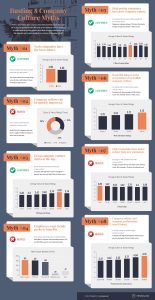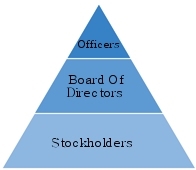According to several sources, many small business owners and self-employed individuals do not have separate business and personal bank accounts. A survey from Citizens Bank reported 26% of small business owners say they don’t have a separate bank account for their company. Another survey from TD Bank reported 56% of small business owners use a single checking account for both business and personal finances.
Whether it’s 1 in 4 or 1 in 2 small business owners without a business bank account, it’s a large number. You might be among the millions of small business owners and self-employed individuals missing out on the benefits of a business bank account. Here are a few reasons why a separate account can boost your business:
- See cash flow more clearly. Most businesses have a natural ebb and flow of funds throughout each month or year. For example, many online services are billed the same day each month. Your business cash flow is harder to understand when your account includes personal expenses such as apartment rent due the first of each month. More importantly, when you get a clear view of cash flow, you can manage it proactively.
- Take advantage of business deductions when filing your taxes. During tax season, deductions can have a significant impact on your tax bill. For example, you may be able to reduce your taxable income by deducting travel expenses and research costs. When these expenses are managed in a separate account, it makes tax filing easier to manage.
- Reduce the risk of errors. From an accountant’s perspective, “comingling your books” comes with several challenges. Yet, many people who start working for themselves say it’s hard to tell where the work world ends and personal life begins. The opportunity with a separate business account is to draw a line explicitly and consistently.
Once you’ve decided a separate account can boost your business, follow these three steps to open a business bank account.
- Identify what you need in a business bank account
You probably want a business account experience that mirrors your personal account experience. This typically includes a checking account, a savings account, and a debit card. You might also consider your online and mobile banking requirements, such as bill payment and check deposits. If this is your first step in separating business finances, you may also consider a business credit card.
- Compare your current bank offering with a few alternatives
If part of the reason you’ve held off creating a dedicated business account is because change is hard, then you’re not alone. If you open a business bank account with your current bank, that will create the least amount of change. Often, the login process is the same for personal and business accounts, and you can link them together in your online banking dashboard for easy access.
However, you should review a few alternatives in case your current bank doesn’t offer a competitive small business account. There are three primary elements to consider: fees, limits, and incentives. As a general rule, you want no fees, very few limits, and a great incentive to open a business bank account.
When I opened my own business bank account, here is what I agreed to:
- Fees: I can avoid a monthly fee if I keep the daily balance above $ 3,000
- Limits: I have 100 free transactions and up to $ 2,500 in cash deposits per month before any usage fees kick in
- Incentive: By achieving the daily balance for the first two months, I received a $ 200 bonus
A site like NerdWallet does a lot of the research for you.
- Go to the bank branch in person and bring the necessary materials
Going to a branch feels unnecessary in today’s online world, but it’s important to meet your new business partner face-to-face. It’s a partnership after all. You may want to leverage your business bank account in the future to get a loan.
There aren’t many requirements to set up a business bank account. For identification, you need a valid ID (e.g., driver’s license), your Social Security Number, and your Employer Identification Number (EIN). The EIN is the ID for your business. If you don’t have one, you can create an EIN online in less than 10 minutes.
You also need to have a business name and a description of your business. If you’re doing business under your own name, you can simply affix “DBA” for business purposes. DBA stands for Doing Business As. As for description, the bank needs to know how to classify your business. For example, your business classification could be consulting, marketing services, construction, home services, etc.
By opening a business bank account, you’re on your way to separating business income and expenses from personal funds, and ultimately giving your business a boost.
Business & Finance Articles on Business 2 Community(102)
Report Post







